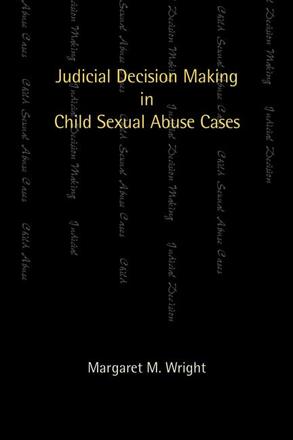
Description
In the 1980s, Canada witnessed a public outcry over child sexual abuse cases. Elected officials sought a remedy through legal reforms. Amendments were made to the Criminal Code of Canada and sexual assault was redefined. The word “rape” was replaced with a continuum of categories intended to reflect the full range of sexually intrusive behaviours. Margaret Wright examines how the courts have dealt with child sexual abuse cases since then. She demonstrates that although the laws may have changed, their interpretation still depends on the social construction of children and on judges’ own understanding of what constitutes child sexual abuse.
Reviews
…this thoughtful and frequently insightful book demonstrates that, despite widespread public interest and the changes in law it has engendered, a fundamental right of children not to be sexually victimized by adults is not in fact widely recognized by the Canadian courts.
- Donalee Moulton